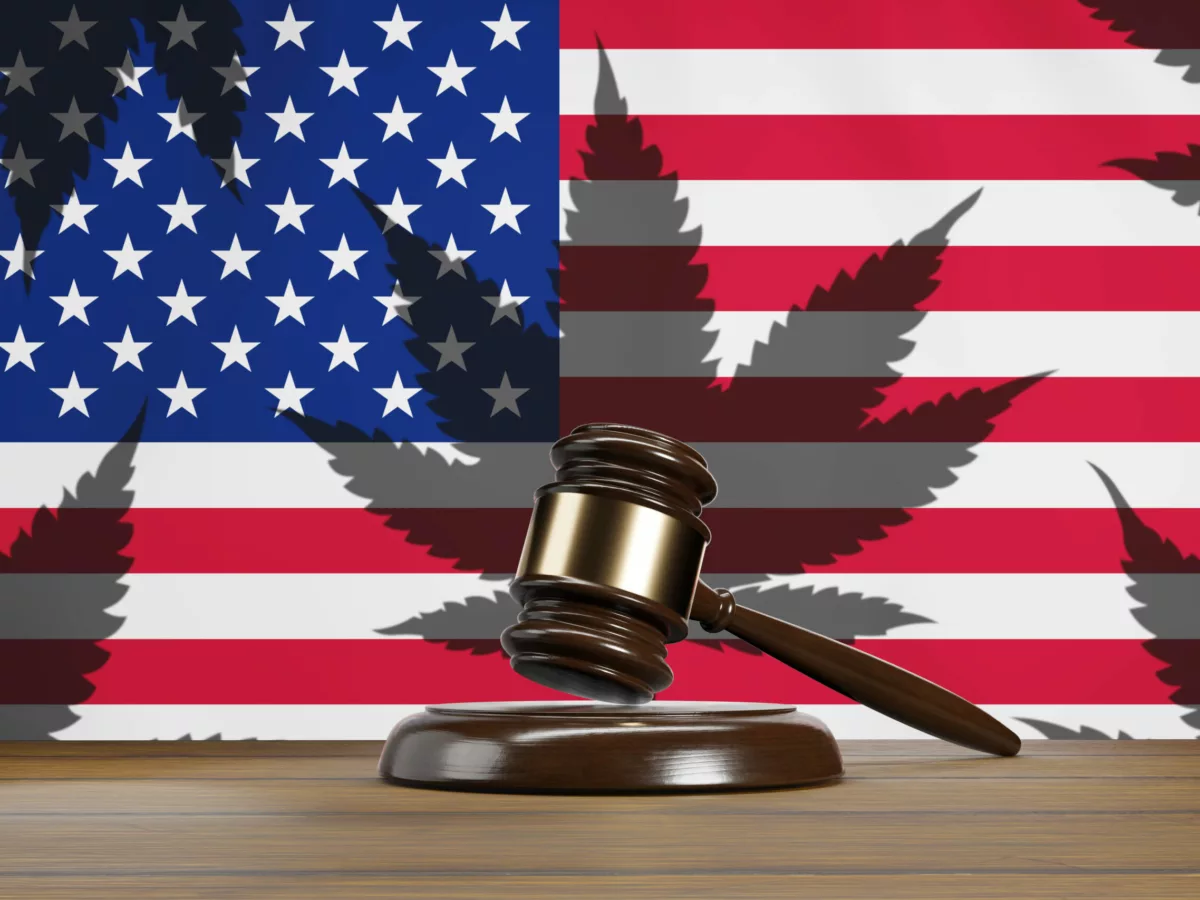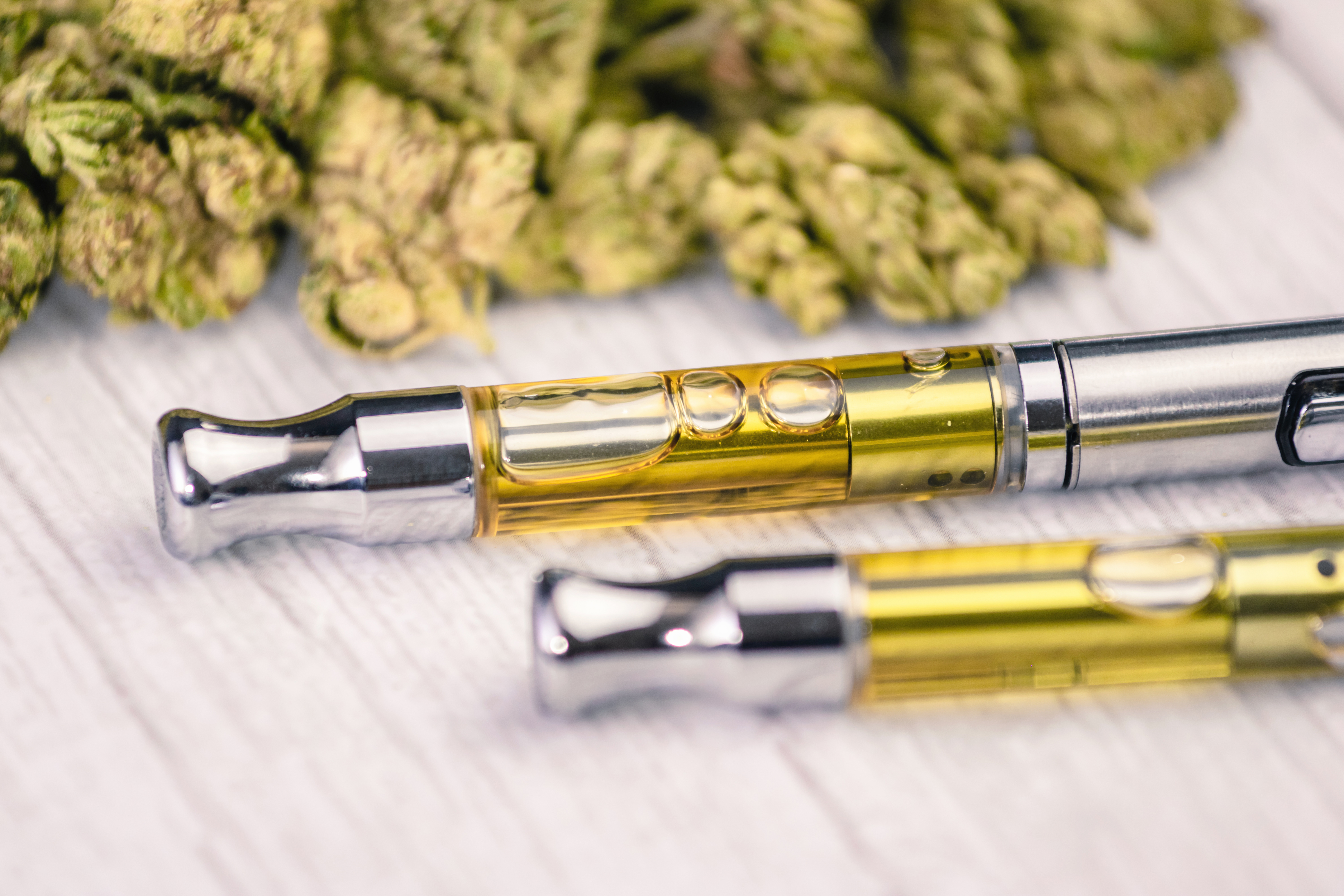The District of Columbia’s cannabis industry is coming out of the shadows after almost eight years functioning under the I-71 initiative – a law that allowed cannabis to be gifted in small amounts. A plethora of gray market shops appeared, selling all sorts of trinkets or services with a ‘gift’ of cannabis on the side.
A new bill passed this March seeks to expand the District’s medical cannabis program over the next two years and either swallow “gifting” shops into the legal market or leave them by the wayside. Previously, there were only six medical dispensaries in the city. As the expansion began, advocates, citizens and politicians highlighted the necessity of prioritizing social equity for a city that felt the brutal impact of the war on drugs on its majority Black population.
D.C. is attempting to avoid the pitfalls of other social equity programs around the country that either completely failed, like California, or were mangled by delays causing the gray market to flourish, like New York, leaving politicians cracking down on many minority operators they claimed to want to help.
The narrow definition of D.C.’s social equity requirements caused the city council to pass an emergency resolution this Tuesday, July 10, to expand the applicant pool. The previous definition excluded many people impacted by the war on drugs, according to business owners and community members.
Despite D.C. receiving 58 applications for the first round of social equity licenses (business license categories are split up over the next two years), only seven of those applications were from family members of formerly incarcerated people who also felt the secondary ramifications of their family’s drug charges. Whether guilty or innocent, one drug charge can cost thousands of dollars to defend, and research shows incarceration can reduce lifetime wages up to 30%.
The unanimously passed resolution expanded the criteria to include family members of people arrested and convicted, not just incarcerated. It also adds siblings and grandparents to eligible family members, not just kids and spouses.
ABCA accepted 39 applications for conditional licenses as of Thursday July 13, 32 of which are from returning citizens. These licensees will still need to find locations and pass a public comment period before officially getting approved. Nineteen additional applications have been asked to submit more information in the next 30-days for approval.
So far, 20 cultivation centers, 18 manufacturers and one courier have received social equity licenses. Half of all D.C. licenses in every category must be social equity applicants. This means there will be available a minimum of 20 cultivation center, 18 manufacturer, and 1 courier license to non-social equity applicants on a first-come basis during the open application period in August.

The changes were a result of the longest Alcoholic Beverage and Cannabis (ABC) Board hearing yet. In early June, almost 50 community members, business owners and cannabis patients testified on the medical expansion. Though topics ranged from concentrate limits to supply chain issues, most outcry surrounded the limiting social equity requirements set by the council.
“The legislation passed yesterday represents a show of good faith on the D.C. Council’s part to listen to stakeholders, especially D.C. natives, and build upon what is already in place,” Mackenzie Manns, project manager for the Generational Equity Movement – a coalition of Black-owned D.C. I-71 shops – said in a statement.
“We are risking the opportunity for reparations for a community that was over-policed and deserves the chance to enter a generational changing industry,” Manns said. The expansion now grants more opportunities to residents, giving them a chance to “turn their resilient spirits from facing oppressive systems into cannabis businesses that will create generational change.”

While the new definition will include more candidates, D.C. still leaves out commonly used metrics, like growing up or attending school in an area historically impacted by the war on drugs or over-policing (Maryland included this in their program). But ABCA Director Fred Moosally, says the simplicity of the District’s program is one of its strengths.
“It is straightforward. Ranking and scoring cause delays,” Moosally said. “We don’t have scoring. We don’t have average ranking factors. We don’t need tiebreakers. Anybody can apply during an open application period which is great. We’re not leaving out folks who qualify simply because they didn’t get picked in a lottery or they didn’t score a certain score.”
Moosally also highlighted a conditional license which allows a qualifying candidate such as a returning citizen to apply for the license alone, get approved and then approach investors. He thinks the low sales tax of 6% and the 75% reduced fees for the first three years set up the cannabis market expansion to successfully boost social equity.
Despite both Virginia and Maryland moving forward with adult-use of cannabis, D.C. is still crippled by a congressional law preventing the federal jurisdiction from regulating the sale of recreational cannabis. Congress has continued to stonewall D.C.’s efforts to establish a recreational market since 2014.
Though the council passed this emergency resolution, any permanent change to the bill that passed Congress in March will need to be reapproved by Congress this year.
“Frankly, we’re never going to have the widespread social equity that we need in this program until the federal government acts,” Christina Henderson, council member at large, said in the July 10 legislative session.
Until federal lawmakers choose to legalize recreational cannabis across the country or grant the city home rule, D.C. will not be able to fully legalize it and therefore regulate its sales. The medical cannabis expansion was the next best thing available to the council.
The D.C. gray market will be forced to go legit by January 2024 or close up shop. Any I-71 businesses who failed to qualify for the first social equity license on the production side will be able to apply in November during an unlicensed operators period. They will have to wait until March to apply as a social equity applicant and close their doors for months while they wait for that license.
Despite the changes in the equity definition, D.C. cannabis business owners want a bigger spot at the table. Antoine Pritchett II, a managing partner at a currently licensed medical cultivation center, told the ABC board in June they should establish an advisory board that includes industry members.
“So often in this industry policy is enacted without consulting subject matter experts on how to best accomplish the goal of effective regulation and the industry professionals, business owners and the public are left to deal with the fallout,” he said in a statement.
The only benefactors of poor regulations, according to Pritchett, are multi-state operators that have dominated other states as smaller businesses went bankrupt attempting to hold on to a bucking cannabis market.
“The goal is to provide real opportunities for social equity applicants in the District, to create generational wealth, and to help undo the damage done by the war on drugs,” Pritchett II said. “And to make Washington, D.C., the international benchmark for what a cannabis market and a social equity program can be when regulation is rolled out and executed properly.”
The next social equity license period for brick-and-mortar and internet retailers will open in March 2024. Courier, cultivation centers and manufacturers who did not qualify for social equity can apply starting Aug. 29 for the normal license. But these licenses will be capped at least 39 and the fees will not be reduced.
Update: a clarification was added to clearly define the 39 licenses as conditional licenses that are not formally issued yet. More steps must be completed in the process before the final business licenses are issued, including a public comment period. Approved applicants have up to a year to secure a location and provide that information to ABCA.





